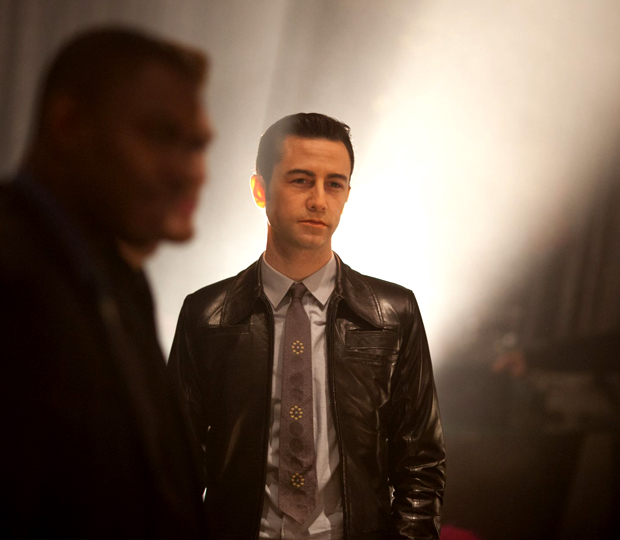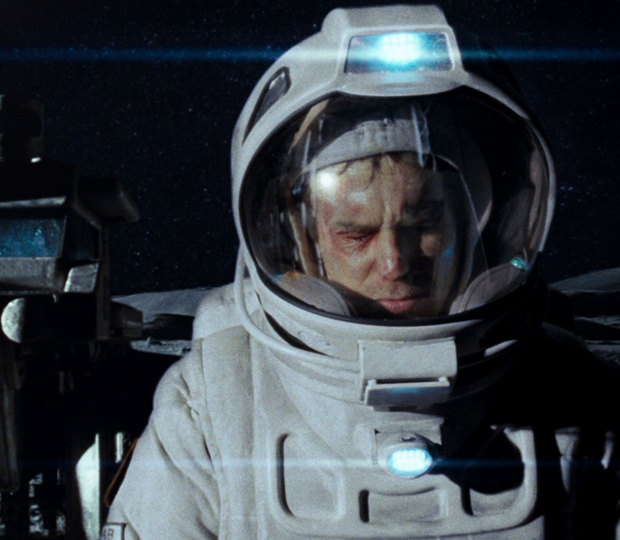 As the actor/fortuneteller Criswell stated in Ed Wood’s Plan 9 from Outer Space, “we are all interested in the future, for that is where you and I are going to spend the rest of our lives.” While Ed Wood wasn’t much for writing prescient film criticism into his scripts, he may have accidentally hit upon the precise element that has us all so intrigued by science-fiction. When a sci-fi film is set in a distant future, the visual construction of that film becomes itself an exhibition of wild speculation about where we’re heading. But how often do we get so wrapped up in shopping the technological possibilities that we ignore the underlying story? More to the point, how often is that misguided focus of the filmmakers and/or the studio?
As the actor/fortuneteller Criswell stated in Ed Wood’s Plan 9 from Outer Space, “we are all interested in the future, for that is where you and I are going to spend the rest of our lives.” While Ed Wood wasn’t much for writing prescient film criticism into his scripts, he may have accidentally hit upon the precise element that has us all so intrigued by science-fiction. When a sci-fi film is set in a distant future, the visual construction of that film becomes itself an exhibition of wild speculation about where we’re heading. But how often do we get so wrapped up in shopping the technological possibilities that we ignore the underlying story? More to the point, how often is that misguided focus of the filmmakers and/or the studio?
There have been a good many studio sci-fi films over the last few years that have seemed far more interested in wading through the science than developing the fiction. Something like Prometheus fits within this troubling category. It is a movie of great breadth and epic scope, and it pulses to the beat of 3D maps and other space age wonderments. Yet sadly, screenwriter Damon Lindelof seemed to have troubling seeing the narrative woods for all the digital trees. The story is fraught with plot holes and inconsistencies that make Prometheus a beautiful, yet ultimately empty vessel.
On the flipside would be something like District 9. True, its visuals are far less grandiose than those of Prometheus, and not simply by virtue of the fact that its setting is more terrestrial. District 9 shows us a decidedly less polished future. It is a temporally advanced environment with hovering spaceships and even mech suits, but the underscoring themes of poverty and prejudice temper the tech. What we have here is a perfect example of how great sci-fi should be constructed. It’s a matter of the filmmaker first wanting to write a strong, meaningful story and then finding where the sci-fi elements service the plot and not the other way around.
When that approach is not utilized, we get films like James Mather and Stephen St. Leger’s Lockout. The merits, and frankly dubious existence, of its entertainment value notwithstanding, Lockout is a movie that seemed built upon the shaky foundation of trying to retrofit John Carpenter’s Escape from New York for space travel. The story is frightfully contrived and dotted by warp jumps in logic, but it does bear the seemingly requisite number of spaceships and futuristic place settings. Were we really beyond our rights to demand, if not a well-founded script, then at least an interesting character to peek out through the sci-fi hullaballoo?
Duncan Jones’ Moon has a plot that is built upon a simple, yet universal concept: isolation. Sam Rockwell plays an astronaut who is stationed on the moon, manning a post with only a computer interface as a companion. True, Moon’s budget was not out of this world, but it does an exceptional job constructing its futuristic aesthetics.  Moreover, Moon is an intensely human story and a fascinating character study that, but for one spoilery detail here withheld, could have just as easily been set in, say, a remote Colorado hotel. It serves the function to which all sci-fi should aspire, and frankly is arguably its utility as a genre: to use the future to emphasize the universal truths of the present.
Moreover, Moon is an intensely human story and a fascinating character study that, but for one spoilery detail here withheld, could have just as easily been set in, say, a remote Colorado hotel. It serves the function to which all sci-fi should aspire, and frankly is arguably its utility as a genre: to use the future to emphasize the universal truths of the present.
The interesting thing about sci-fi these days is it seems that not only are the standouts of the genre not dependent upon massive budgets, but that there can be an inverse proportion between the dollars spent on production and the overall quality of the film. Take for example, Battleship. Though it’s not a film set in the future, the invading aliens are happy to oblige the audience with techno spectacle. To say Battleship was of subpar quality is to say it is somewhat unwise to sail the Pacific in a leaky rowboat. It is so concerned with providing that spectacle that it actually goes so far as to borrow relentlessly from other poorly drawn sci-fi from the last few years to create an amalgam of awful.
Then there’s a movie like Chronicle, again not set in the future but possessed of a level of superhuman spectacle. Its conceit is predicated upon an alien encounter and how that encounter advances the mental abilities of three high school students. It was created on a budget that would hardly cover Battleship’s craft services, and yet the care and thought put into the characters and the thematic nuances supersede all the grandiose genre set pieces.
Rian Johnson’s Looper, opening this week, is similarly crafted. It has an outstanding story to tell; one that articulates timeless themes even as it bounces across temporal divides. It is a movie in which the future is not permitted to be the star, and that is precisely what separates great sci-fi from fleeting, unsubstantial technological white noise.
[Photo Credit: Sony Pictures (2)]
More:
Joseph Gordon-Levitt on Why His ‘Looper’ Character Is and Isn’t a Young Bruce Willis


